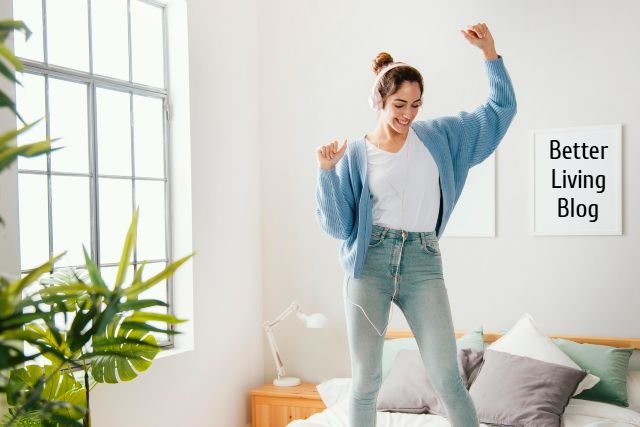
Everyone wants to live a happier, more balanced life — but achieving it can feel complicated in a world full of noise and endless obligations. The Better Living Blog is built on the idea that a fulfilling life doesn’t have to be difficult; it’s about making small, intentional changes that improve your physical, emotional, and mental well-being.
In this guide, we’ll explore practical ways to enhance your happiness, boost productivity, and cultivate peace through simple lifestyle shifts inspired by the Better Living Blog philosophy.
What Is the Better Living Blog?
The Better Living Blog focuses on actionable, evidence-based tips that promote wellness and balance. It’s not about perfectionv— it’s about progress. By introducing sustainable habits, you can make everyday life calmer, more organized, and more meaningful.
Core Areas of Focus
- Mindfulness & Mental Health: Practicing gratitude and awareness.
- Physical Well-Being: Nourishment, movement, and rest.
- Lifestyle Simplification: Reducing clutter and decision fatigue.
- Positive Relationships: Building supportive social connections.
- Purpose & Growth: Aligning daily life with your values.
Through these pillars, readers learn how to improve happiness from the inside out — one mindful decision at a time.
Why Simplicity Leads to Happiness
Modern life often glorifies busyness, but research consistently shows that simplifying your routines can increase happiness and reduce stress. A 2023 study from Frontiers in Psychology found that individuals who regularly practice minimalism report higher levels of satisfaction and lower anxiety.
The Better Living Blog approach aligns perfectly with this idea. By decluttering your schedule, environment, and mind, you create space for joy and focus.
Building a Better Living Mindset
Before adopting new habits, it’s essential to cultivate the right mindset. Happiness is a skill — something you strengthen with consistent practice. The Better Living Blog recommends focusing on three foundational principles:
1. Gratitude Over Comparison
Instead of measuring yourself against others, start each day by acknowledging what’s already good in your life. Studies show that gratitude journaling can improve mood and overall optimism.
2. Presence Over Perfection
Being present allows you to appreciate life’s moments as they are. Use mindfulness techniques such as deep breathing, short walks, or meditation breaks throughout your day.
3. Progress Over Pressure
Self-growth doesn’t mean constant self-criticism. Celebrate small wins and learn from setbacks instead of fixating on flaws.
Practical Tips from the Better Living Blog for a Happier Life
The following are actionable tips curated from the Better Living Blog framework — covering health, mindset, relationships, and daily balance.
1. Start Your Day with Intention
A calm morning sets the tone for a productive day. Instead of checking your phone first thing, follow this simple morning routine:
| Time | Activity | Purpose |
|---|---|---|
| 7:00 a.m. | Wake up and hydrate | Boost energy and focus |
| 7:10 a.m. | Five minutes of mindfulness | Clear mental clutter |
| 7:20 a.m. | Light movement (yoga or stretching) | Enhance blood flow |
| 7:45 a.m. | Nutritious breakfast | Stabilize mood and metabolism |
This gentle start helps reduce anxiety and enhances productivity.
2. Simplify Your Environment
Cluttered spaces often reflect and amplify mental clutter. A Better Living Blog staple is adopting minimalist organization.
Tips to declutter effectively:
- Remove one unnecessary item from each room daily.
- Keep only what adds genuine value or joy.
- Digitize documents to reduce paper chaos.
- Create a designated “no-tech zone” in your home for relaxation.
By maintaining simplicity in your surroundings, you create calm in your mind.
3. Practice Mindful Eating
Your diet influences both physical and emotional health. Rather than obsessing over strict diets, the Better Living Blog encourages mindful eating — paying attention to how food makes you feel.
Guidelines:
- Eat slowly and savor flavors.
- Choose whole, colorful foods.
- Limit processed sugar and caffeine.
- Avoid multitasking while eating.
According to the Harvard T.H. Chan School of Public Health, mindful eating improves digestion and helps prevent overeating by reconnecting people with their body’s natural hunger cues.
4. Build Meaningful Connections
Strong social ties are one of the greatest predictors of happiness. In a long-term Harvard study spanning over 80 years, researchers found that healthy relationships have a greater impact on life satisfaction than wealth or fame.
To cultivate better connections:
- Prioritize quality over quantity in friendships.
- Make time for regular check-ins or shared activities.
- Practice active listening and empathy in conversations.
- Express appreciation frequently.
Healthy relationships nurture emotional security and joy.
5. Move Your Body Daily
Physical activity doesn’t have to mean hours at the gym. Even light daily movement can boost endorphins and reduce stress hormones.
Examples of accessible movement routines:
- 20-minute morning walk
- Short desk-stretch breaks
- Weekend bike rides
- Gentle yoga or pilates
The Better Living Blog emphasizes consistency over intensity — finding activities you truly enjoy to make movement a natural part of your day.
6. Establish a Digital Detox Routine
Excessive screen time drains attention and increases stress. A digital detox, even for a few hours a day, can reset your focus.
Try this approach:
- Designate screen-free hours before bed.
- Turn off notifications for non-essential apps.
- Replace scrolling with a book, hobby, or journaling.
Reducing digital noise gives you mental clarity and allows more time for genuine experiences.
7. Create an Evening Wind-Down Ritual
A peaceful night routine improves sleep quality and emotional balance.
Better Living Blog recommendations:
- Dim lights and disconnect from electronics one hour before bed.
- Reflect on three things you’re grateful for.
- Try light stretching or calming herbal tea.
- Sleep at consistent times daily.
When you rest well, every area of your life functions better.
8. Practice Financial Mindfulness
Money stress can undermine happiness, even for those earning well. The Better Living Blog advocates intentional financial habits.
Suggestions:
- Track spending weekly.
- Set short-term and long-term goals.
- Automate savings where possible.
- Focus on experiences rather than possessions.
Research from Psychological Science reveals that people who spend money on experiences, such as trips or learning, report greater long-term satisfaction than those who prioritize material purchases.
9. Learn Something New Every Month
Lifelong learning keeps your brain sharp and gives a sense of progress. You don’t need to enroll in formal courses — try reading, skill-based hobbies, or online tutorials.
Learning builds confidence, fosters creativity, and adds meaning to everyday life.
10. Give Back to Others
Acts of kindness are proven mood boosters. A University of Oxford study found that performing small acts of kindness for just seven days significantly increases happiness.
Ways to integrate giving into your life:
- Volunteer locally once a month.
- Mentor someone starting out in your field.
- Offer emotional support to a friend.
- Donate unused items or time to charitable causes.
Contribution nurtures gratitude and purpose — the cornerstones of a better life.
Common Questions About Living Happier
What are the first steps to improving my daily happiness?
Start by identifying one small change — like setting aside 10 minutes daily for reflection or gratitude journaling. Gradual shifts lead to lasting transformation.
How can I stay consistent with new habits?
Track your progress and reward yourself for milestones. The Better Living Blog suggests using habit-tracking apps or visual calendars for accountability.
Can happiness really be learned?
Yes. Positive psychology research confirms that intentional practices — gratitude, mindfulness, and social connection — can rewire brain pathways linked to happiness.
What if I fail to stick to my routines?
Perfection isn’t the goal. Reflect, adjust, and restart. Even partial progress contributes to your overall growth and well-being.
Expert Insights and Scientific Support
Happiness isn’t abstract — it’s measurable and supported by research.
- World Health Organization: Regular exercise reduces anxiety by up to 30%.
- University of California, Berkeley: Gratitude practices improve sleep and reduce stress.
- Mayo Clinic: Social support increases life expectancy and improves immune function.
These findings validate what the Better Living Blog promotes — simple, consistent habits are more powerful than drastic life overhauls.
A Better Living Success Story
Consider Sarah, a 35-year-old working professional who felt overwhelmed by constant digital distractions and poor sleep. After applying principles from the Better Living Blog — morning mindfulness, evening journaling, and reduced screen time — she reported better focus, improved mood, and deeper connections within two months.
Real-world examples like Sarah’s show that true happiness stems from everyday choices, not drastic lifestyle changes.
Better Living Blog Weekly Habit Planner
| Day | Focus | Mini Goal |
|---|---|---|
| Monday | Gratitude | Write 3 things you’re thankful for |
| Tuesday | Movement | Take a 20-minute walk |
| Wednesday | Connection | Call a friend or relative |
| Thursday | Learning | Read for 15 minutes |
| Friday | Decluttering | Tidy one small area |
| Saturday | Giving | Do a random act of kindness |
| Sunday | Rest | Enjoy a technology-free morning |
Using this weekly rhythm promotes balance and helps habits become second nature.
Conclusion: Embrace the Better Living Blog Philosophy
The Better Living Blog is more than just advice — it’s a mindset for cultivating happiness through awareness, simplicity, and intentional living.
You don’t need to overhaul your life overnight. Small, consistent actions — like mindful mornings, gratitude practices, and nurturing connections — can transform your well-being over time.
By applying these Better Living Blog strategies, you’ll experience not only greater happiness but also a deeper sense of purpose and peace in your daily life.


